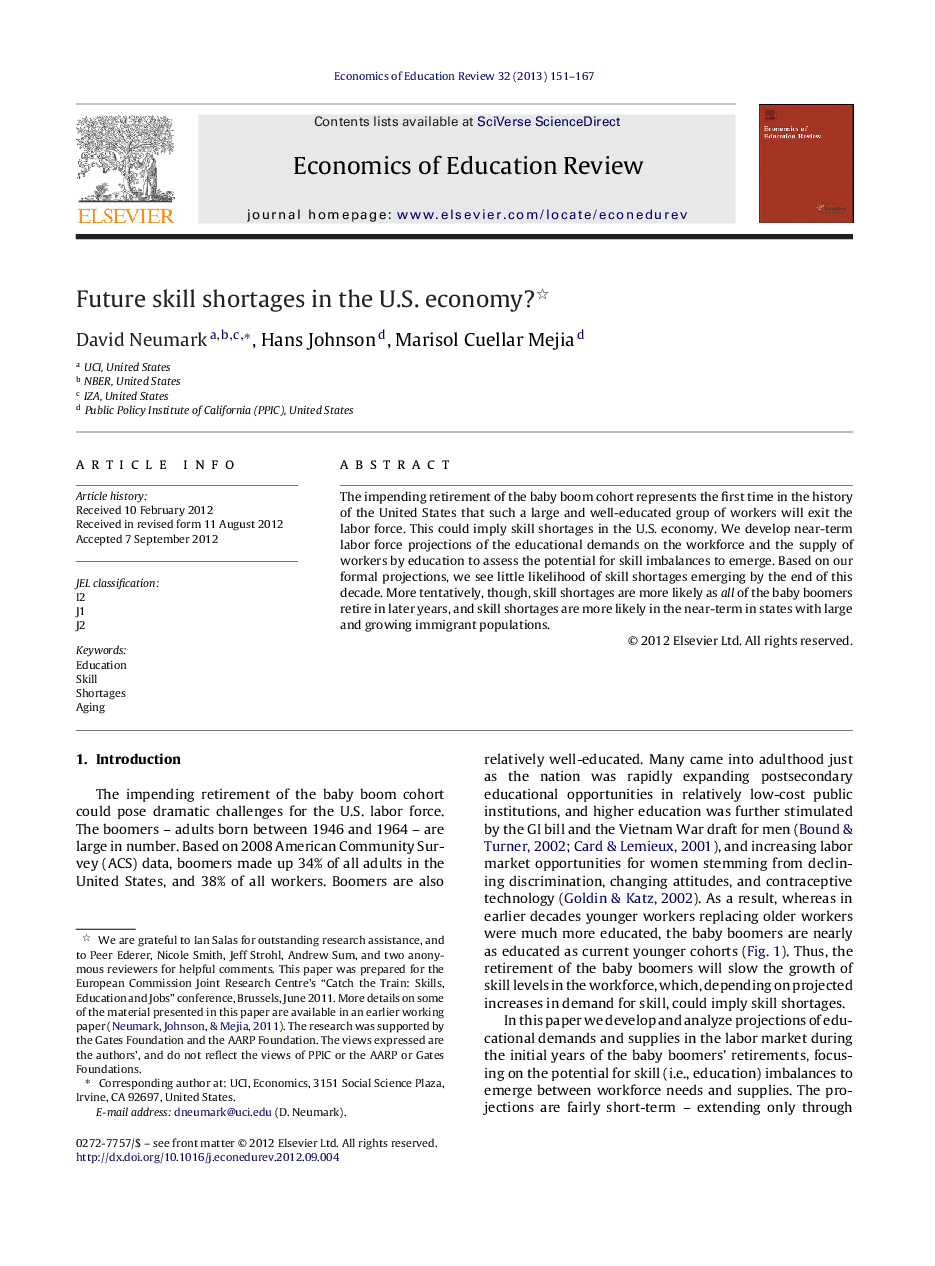| Article ID | Journal | Published Year | Pages | File Type |
|---|---|---|---|---|
| 354549 | Economics of Education Review | 2013 | 17 Pages |
The impending retirement of the baby boom cohort represents the first time in the history of the United States that such a large and well-educated group of workers will exit the labor force. This could imply skill shortages in the U.S. economy. We develop near-term labor force projections of the educational demands on the workforce and the supply of workers by education to assess the potential for skill imbalances to emerge. Based on our formal projections, we see little likelihood of skill shortages emerging by the end of this decade. More tentatively, though, skill shortages are more likely as all of the baby boomers retire in later years, and skill shortages are more likely in the near-term in states with large and growing immigrant populations.
► The retirement of the baby boomers in the United States could lead to shortages of educated workers. ► We project educational demands on the workforce, and supplies of workers by educational level, for the near-term. ► In the aggregate, skill shortages are unlikely to emerge. ► States with large and growing immigrant populations are more likely to face skill shortages. ► In the longer-term, when all of the baby boomers leave the workforce, there is greater risk of skill shortages.
